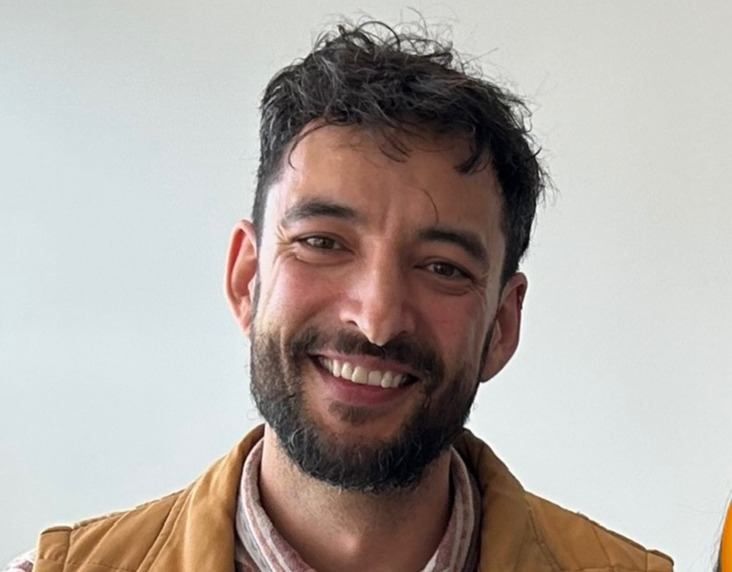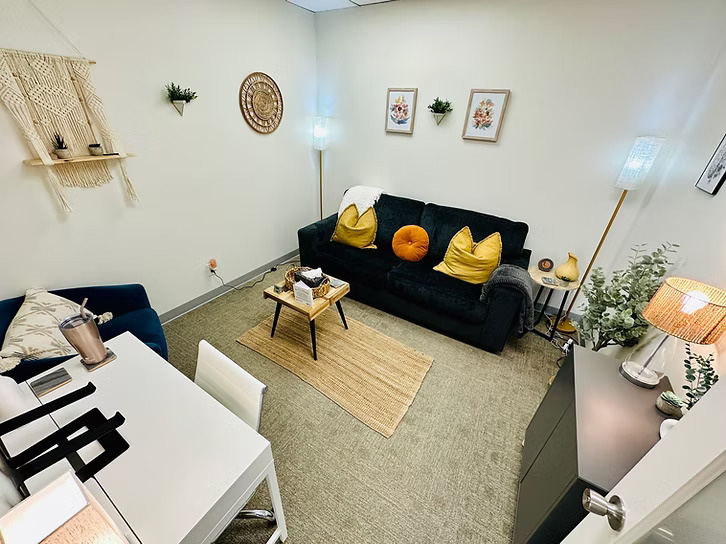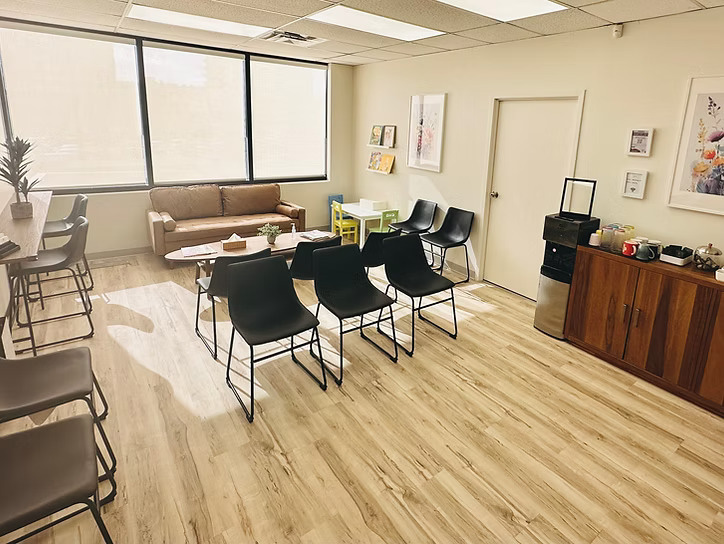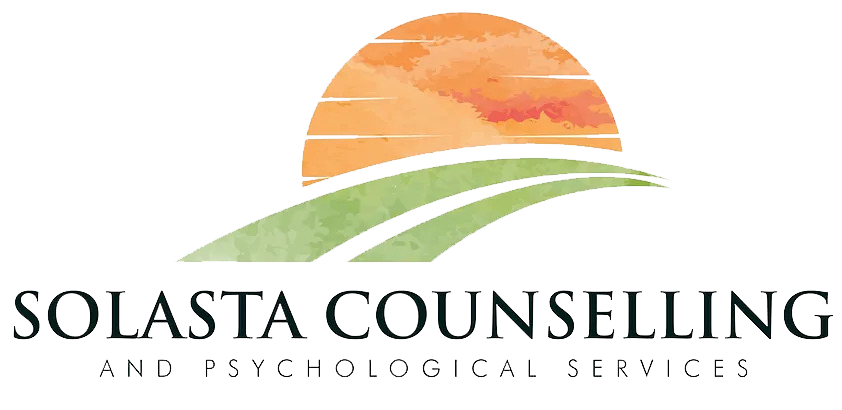Adoption and Fostering Therapy in Calgary
We specialize in adoption and fostering therapy, supporting individuals and families through challenges like attachment, trauma, and identity.

Why is Adoption Counselling Calgary Important?
Adoption and fostering can create lasting emotional and psychological impacts for both children and adults. Whether you’re navigating the adoption process, fostering a child, or helping an adopted child integrate into your family, therapy plays a crucial role in addressing these emotional challenges.
For children, the experience of adoption or foster care can involve feelings of loss, attachment issues, trauma, and confusion about their identity. For parents, it can involve managing behavioural challenges, building trust, and overcoming the complexities of parenting a child with a difficult history.
Why Should I Consider Therapy for Adoption or Fostering?
Therapy helps adoptive and foster families address the emotional challenges associated with adoption and fostering, including trauma, attachment issues, grief, and family dynamics. It offers tools for both parents and children to foster secure attachments and create a nurturing environment.

Common Issues Addressed in Adoption and Fostering Therapy
Adoption counselling Calgary is designed to support both children and adults in navigating the unique emotional and psychological challenges that can arise from these life experiences.

Adoptees often grapple with questions of identity, belonging, and self-worth, while adoptive or foster parents may encounter difficulties in understanding and addressing their child’s emotional needs. Therapy provides a safe space to explore these feelings and develop strategies to build stronger, healthier relationships.
Some of the most common issues that we help with include:
Attachment and Bonding Issues
Children in foster care or those who are adopted may experience difficulty forming secure attachments to their new caregivers, especially if they have experienced neglect or abuse in the past. “Why is my adopted child having trouble bonding with us?”
Therapy helps address attachment issues by creating a supportive space for both the child and parents to strengthen their bond and trust.
Trauma and Emotional Regulation
Many children in the adoption or foster care system have experienced significant trauma, such as abuse, neglect, or separation from their birth family. “How can therapy help a child who has experienced trauma?”
Trauma-focused therapy helps children process their emotions, heal from past wounds, and develop healthier coping mechanisms. For parents, therapy provides guidance on supporting a child through emotional difficulties related to trauma.
Behavioural Challenges
Children who have experienced adoption or foster care may struggle with behavioural issues, such as acting out, aggression, or difficulty following rules. “What can I do if my foster child is acting out?”
Therapy offers strategies to both parents and children for managing difficult behaviours and building a sense of security in the family.
Identity and Self-Esteem
Children who are adopted may struggle with questions about their identity, feelings of abandonment, or difficulties understanding their place in the family. “How can therapy help an adopted child with identity issues?”
Therapy helps children and teens explore their feelings about adoption, develop healthy self-esteem, and build a positive identity.
Grief and Loss
Children in foster care or those who are adopted may have experienced a significant sense of loss, whether it’s the loss of their birth family, a sense of belonging, or their previous home. “How do I help my child cope with loss and grief?”
Therapy offers support for grieving children and families, helping them process these feelings and create a healthy space for emotional healing.
Parenting an Adopted or Foster Child
For adoptive and foster parents, the experience can be filled with challenges in understanding and meeting their child’s emotional needs. “How do I parent a child who has been through trauma?”
Therapy provides tools for parents to manage the emotional challenges of parenting a child with a difficult history, including attachment, behavioural issues, and emotional regulation.
Family Dynamics and Integration
Blending families through adoption or fostering can create complex dynamics and require support in building relationships between siblings, adoptive or foster parents, and birth families. “How can we make our family dynamics work after adoption?”
Therapy helps families navigate complex relational dynamics, build strong bonds, and ensure a supportive and cohesive home environment.
How Adoption and Fostering Therapy Can Help
Adoption copunselling Calgary provides a supportive space for families to navigate the emotional and practical complexities of adoption and foster care.

It helps individuals address feelings of loss, identity struggles, and attachment issues, fostering better understanding and stronger relationships. Therapy also offers tools to manage the effects of past traumas while creating a stable and nurturing environment.
Whether adjusting to a new placement or overcoming long-term challenges, therapy empowers families to heal, connect, and thrive together. Here’s how therapy can help:
Creating Secure Attachments
Adoptive and foster children often face challenges with attachment. Therapy helps parents and children work through these challenges to foster secure, trusting relationships. “How can therapy help build trust between me and my adopted child?”
By using attachment-based therapies, families can work together to form strong, lasting bonds.
Healing from Trauma
Children who have experienced trauma may struggle with anxiety, depression, or behavioural problems. “Can therapy help my child heal from trauma?”
Yes, trauma-focused therapy helps children process and heal from their past experiences, reducing the emotional and psychological impact of trauma.
Managing Behavioural Issues
Therapy helps children and parents develop strategies to manage behavioural challenges. “How can therapy help my foster child with behavioural issues?”
Behavioural therapy can help children learn appropriate ways to express their emotions, while also providing parents with effective strategies to handle challenging behaviours.
Improving Family Communication
Adoption and fostering can introduce new family dynamics that require open communication and understanding. “How can therapy improve family communication after adoption?”
Therapy helps families communicate better, resolve conflicts, and ensure that every member feels heard and understood.
Parenting Support and Education
Adoptive and foster parents can benefit from learning how to best support their child’s emotional needs, especially if they have a history of trauma. “How can I learn to support my adopted child’s emotional needs?”
Therapy offers guidance, education, and support for parents to better understand their child’s needs and create a nurturing environment.
What to Expect in Adoption and Fostering Therapy
When you engage in adoption counselling Calgary at Solasta, you can expect a compassionate, tailored approach to meet your family’s specific needs.


A Safe, Supportive Environment

Care Informed on Trauma

Individualized Therapy for Each Family Member

Ongoing Support and Guidance

Building Stronger Connections
Our goal is to help you build stronger connections, heal emotional wounds, and create a nurturing, resilient family dynamic.
Common Questions About Adoption and Fostering Therapy
Therapy offers support for children and caregivers, helping to address emotional struggles, build trust, and strengthen relationships in a safe, compassionate space.

How Do I Know if My Child Needs Therapy After Being Adopted or Placed in Foster Care?
If your child is exhibiting signs of emotional distress, behavioural challenges, difficulty with attachment, or feelings of sadness or anger, therapy can be an effective way to support them through these challenges.
What if my child doesn’t want to go to therapy?
It’s common for children to resist therapy initially. “How can I help my child feel comfortable with therapy?” Our therapists use creative methods such as art and play therapy to engage children and make the process feel less intimidating.
How Long Will Therapy Take?
The duration of therapy varies depending on the individual’s needs. “How many therapy sessions will my child need?” Your therapist will work with you to set goals and determine the best course of treatment, which may include short-term or long-term therapy.

Why Choose Solasta for Adoption and Fostering Therapy?
Our experienced therapists are committed to helping families in Calgary navigate the emotional and psychological complexities of the adoption and fostering journey.
Calgary Counselling and Psychology Services
Our Calgary psychologists have a wide range of experience and expertise in understanding the unique needs of our clients and helping you reach your therapy goals.
CAP
All of our psychologists are registered with the College of Alberta Psychologist.
PAA
Many of our psychologists are members of the Psychology Association of Alberta.
CCPA
Many of our psychologists are members of the Canadian Counselling and Psychotherapy Association.
Over 20 Years of Professional and Personal Experience

Only

Only

Only

Only

Only

Only

Only

Only

Only

Only

Only

Only

Only

Only
We’re Located in Calgary, Alberta
We provide counselling and psychological services in-person in Calgary and online counselling throughout Alberta.
Suite 200, 1716 16 Ave NW, Calgary AB
*free parking behind the building
Our Calgary Office Space
Our thoughtfully designed counselling spaces are crafted to create a warm, welcoming environment where you can feel completely at ease.







Get Started With Solasta in Three Easy Steps
Find Your Therapist
Book Online
Choose a date and time that fits your schedule and receive instant confirmation of your appointment.
In-person or Online
Visit our welcoming Calgary office or meet with your therapist online from the comfort of your home.
FAQs
What types of therapy do you offer at Solasta Counselling?
At Solasta Counselling, we offer a wide range of evidence-based therapies tailored to your individual needs.
These include Cognitive Behavioral Therapy (CBT), Acceptance and Commitment Therapy (ACT), Dialectical Behavior Therapy (DBT), EMDR for trauma, Narrative Therapy, and Gottman Method Couples Therapy.
Each approach is designed to help address specific challenges, whether you’re dealing with anxiety, depression, relationship issues, grief, trauma, or other concerns.
How do I know if therapy is right for me?
Therapy can be helpful if you’re experiencing emotional or psychological challenges that affect your daily life, relationships, or well-being.
Common signs include persistent feelings of sadness or anxiety, difficulty coping with stress, or a desire for personal growth and self-discovery.
If you’re unsure, an initial consultation can help you explore your concerns and determine if therapy is a good fit for you.
What can I expect during my first session?
Your first session at Solasta Counselling will focus on understanding your unique situation and goals.
You’ll discuss your current challenges, personal history, and what you hope to achieve in therapy.
This session allows your therapist to tailor a treatment plan that suits your needs, while also giving you an opportunity to ask questions and build a comfortable, trusting relationship.
Do you offer virtual or in-person counselling sessions?
Yes, Solasta Counselling offers both virtual and in-person sessions to accommodate your preferences and needs.
Virtual therapy allows you to access support from the comfort of your home, while in-person sessions provide a private, welcoming environment at our Calgary location and throughout Alberta.
Both options ensure the same level of care and confidentiality.
How long does therapy usually take?
The length of therapy varies depending on your goals and the complexity of your concerns.
Some clients see improvement in just a few sessions, while others benefit from longer-term support.
Your therapist will work with you to set realistic expectations and adjust your treatment plan as you progress.
Is therapy confidential?
Yes, all sessions at Solasta Counselling are confidential.
We follow strict professional and legal guidelines to protect your privacy.
The only exceptions involve safety concerns, such as risks of harm to yourself or others, which your therapist will explain during your initial session.
